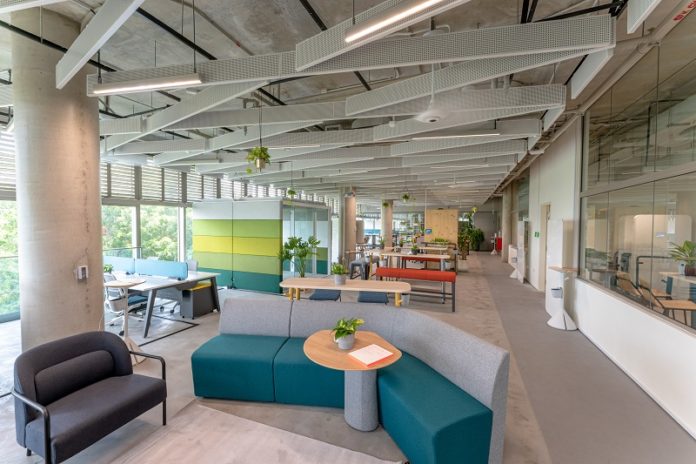Johnson Controls has opened its S$50-million OpenBlue Innovation Center at the National University of Singapore (NUS), touted as pioneering the use of a common configuration language that bridges core building technology with behavioural, wellness as well as spatial data to develop solutions that meet new demands for safety and sustainability in connected spaces.
Set up with with help from ecosystem partners such as NUS and Microsoft, the facility located within the School of Design and Environment (SDE) is intended to be “a living laboratory” for a customisable, contact-free applications built on Johnson Controls’ technology suite OpenBlue.
The centre will have sensors fitted throughout the indoor space, including overhead ventilation to measure air flow, and on furniture that provides insights on occupants’ alertness level.
Engineers from the centre and collaborating NUS researchers will collect and analyse data using OpenBlue, leveraging artificial intelligence and analytics to obtain a qualitative and quantitative understanding of the interactions between technology, indoor environments, and occupant wellbeing.
OpenBlue, is a suite of connected platform, solutions and services that combines the Company’s 135 years of building expertise with cutting-edge digital technology. This open digital platform, when integrated with Johnson Controls core building systems and enhanced by ecosystem partners, connects traditionally separate systems to create new capabilities for safer, more agile, and sustainable space usages.
The ecosystem of partners will tap on the intelligence generated from the centre to create evidence-backed solutions for healthier, safer, and connected indoor spaces.
“Taking an unprecedented holistic and human-centric methodology, we are incorporating people and design perspectives, thus sparking greater innovation within industries and outside traditional boundaries,” said Visal Leng, president of building solutions in Asia Pacific at Johnson Controls.
The collaboration also includes joint research and innovation in the areas on built and urban environment, particularly in data analytics, sustainability and operations, as well as people and wellness. There will also be opportunities for collaboration on teaching and internship programs.
The facility is expected to have more than 100 employees within four years, with strong focus on talent development with NUS at both undergraduate and post-graduate levels.
















